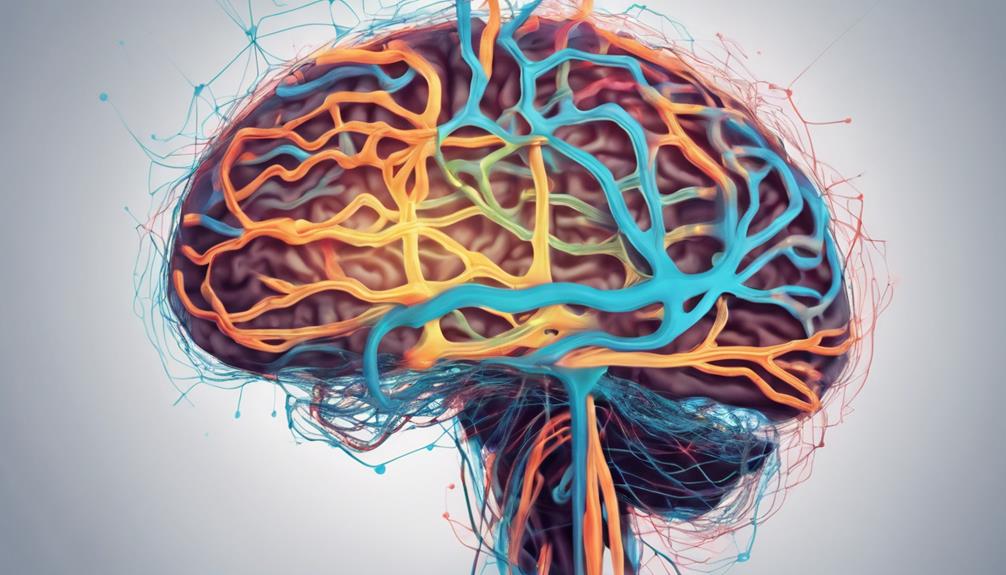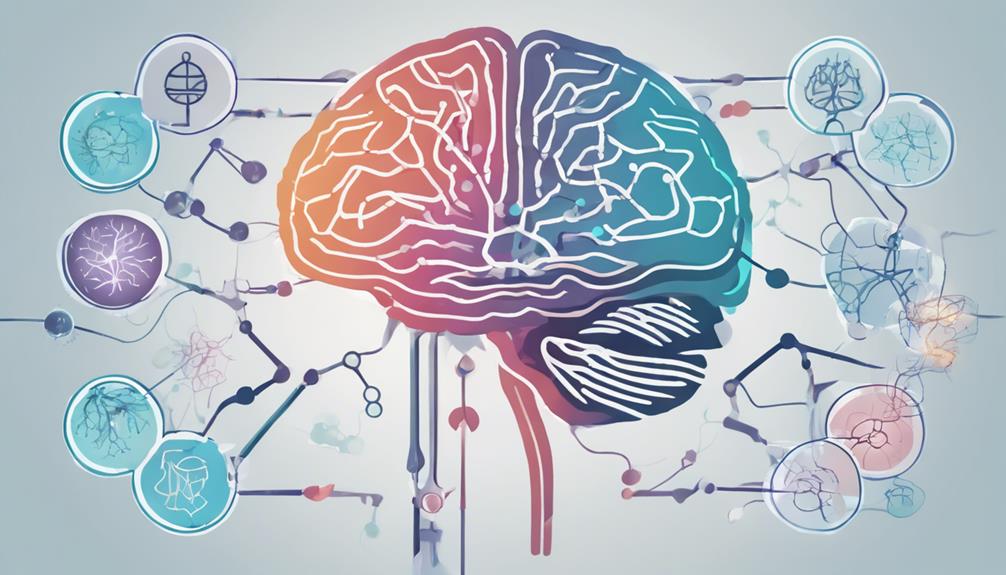Boost your confidence through health hypnosis with these seven crucial tips: first, understand the power of self-confidence and hypnosis. Next, set clear goals to guide your improvement journey. Third, practice daily positive affirmations to rewire your mindset. Fourth, visualize success and positivity to boost self-belief. Fifth, embrace relaxation techniques to manage stress effectively. Sixth, be consistent with hypnosis sessions for gradual progress. Lastly, celebrate each small win to reinforce your confidence. These tips will empower you to achieve personal growth and self-empowerment.
Understanding Self-Confidence and Hypnosis

The correlation between self-confidence and the practice of hypnosis is a topic that warrants exploration for individuals seeking to enhance their well-being. Self-esteem plays a crucial role in how we perceive ourselves and interact with the world.
Hypnosis can be a powerful tool in boosting self-esteem and empowering individuals to overcome self-doubt and negative beliefs. Through hypnosis, individuals can tap into the mind-body connection, fostering a sense of positivity and empowerment.
By accessing the subconscious mind, hypnosis helps reframe negative thought patterns and instill a deep sense of self-belief. This process can lead to a more confident and resilient mindset, enabling individuals to navigate life's challenges with grace and determination.
Furthermore, hypnosis can assist individuals in visualizing their goals and aspirations clearly, reinforcing a sense of purpose and direction. By aligning the subconscious mind with positive affirmations and beliefs, individuals can cultivate a strong foundation of self-confidence that radiates in all aspects of their lives.
Setting Clear Goals for Improvement
Establishing concrete objectives is essential for making progress in personal growth and development. Goal setting allows individuals to identify areas for improvement and provides a roadmap for achieving desired outcomes. When setting goals for improvement, it is crucial to be specific, measurable, achievable, relevant, and time-bound (SMART). By outlining clear objectives, individuals can hold themselves accountable for their progress and stay motivated throughout the journey.
Tracking progress is another vital aspect of goal setting. Regularly monitoring advancements and setbacks helps individuals stay on course and make necessary adjustments to their approach. Self-reflection plays a significant role in this process, as it allows individuals to assess their actions, thoughts, and behaviors in relation to their goals.
Practicing Positive Affirmations Daily

To cultivate a positive mindset and enhance self-confidence, integrating daily practices of positive affirmations can be a transformative tool in fostering personal growth and well-being. Mindful meditation, combined with affirmation practice, can help individuals rewire their thought patterns, increase self-esteem, and promote a sense of inner calm.
By repeating positive statements about oneself, individuals can challenge negative self-talk and replace it with empowering beliefs.
Engaging in affirmation practice involves choosing affirmations that resonate personally, such as 'I am capable,' 'I am deserving of success,' or 'I believe in myself.' These affirmations should be stated in the present tense, be positive, and specific to individual goals and aspirations.
It is essential to practice these affirmations consistently, ideally in the morning or before bedtime, to reinforce their impact on the subconscious mind.
Mindful meditation can complement affirmation practice by helping individuals focus on the present moment, increase self-awareness, and cultivate a sense of positivity. By incorporating these practices into daily routines, individuals can build confidence, reduce stress, and enhance overall well-being.
Visualizing Success and Positivity
Practicing visualization techniques can be a powerful tool in building confidence and fostering a positive mindset. Creative visualization involves mentally picturing yourself achieving your goals or overcoming challenges. By vividly imagining success, you can create a mental blueprint for your desired outcomes, thereby increasing your motivation and belief in your abilities.
Manifesting through visualization involves focusing on what you want to achieve rather than what you fear. Positive thinking is at the core of visualization. When you visualize success and positivity, you empower yourself to take on challenges with a can-do attitude. This mental rehearsal can help reduce anxiety and boost self-confidence, leading to improved performance in various aspects of your life.
Embracing Relaxation Techniques

In addition to visualizing success and positivity, incorporating relaxation techniques into your routine can further enhance your confidence and overall well-being. Stress management is a crucial aspect of maintaining a healthy mind-body connection.
By actively engaging in relaxation techniques such as deep breathing exercises, progressive muscle relaxation, mindfulness meditation, or guided imagery, you can effectively reduce stress levels and promote a sense of calmness and inner peace.
These relaxation techniques work by activating the body's relaxation response, which helps lower heart rate, blood pressure, and muscle tension. When stress is managed effectively, the mind-body connection is strengthened, leading to improved mental clarity, emotional stability, and overall physical health.
Consistent Hypnosis Sessions for Progress
Engaging in regular hypnosis sessions can be a valuable tool for making consistent progress towards building confidence and achieving personal growth.
The frequency at which you attend these sessions can significantly impact the results you experience. Commitment and dedication to attending sessions regularly are key factors in harnessing the full benefits of health hypnosis.
Consistency in hypnosis sessions allows for a deeper exploration of the subconscious mind, enabling gradual but impactful changes in thought patterns and behaviors.
It is through regular sessions that you can begin to rewire negative beliefs, boost self-esteem, and foster a more positive mindset. Each session builds upon the last, creating a foundation for sustainable progress and growth.
Celebrating Small Wins and Growth

As progress unfolds through consistent hypnosis sessions, acknowledging and celebrating small wins and growth becomes a vital component in reinforcing newfound confidence and self-improvement.
Reflecting on progress allows individuals to see how far they have come, serving as a powerful source of motivation to continue their journey towards better health and well-being. By recognizing and celebrating even the smallest achievements, individuals can build resilience and strengthen their self-belief.
Each milestone achieved, no matter how minor it may seem, contributes to the overall progress and development. These moments of success should be embraced and celebrated to instill a sense of accomplishment and pride. Such positive reinforcement not only boosts confidence but also reinforces the belief that further growth and improvement are attainable.
Frequently Asked Questions
Can Health Hypnosis Help With Physical Ailments?
Health hypnosis can be effective in managing physical ailments such as pain and boosting the immune system. Through guided relaxation and suggestion techniques, individuals may experience reduced discomfort and improved overall well-being with this complementary approach.
Is Self-Confidence Permanent After Hypnosis?
Self-improvement through hypnosis can enhance self-esteem and promote mental health. While hypnosis may empower individuals to build self-confidence, its permanence varies. Continued practice, reinforcement, and personal commitment are crucial for long-term benefits.
How Long Does It Take to See Results From Hypnosis?
The effectiveness of hypnosis in producing results varies, with some experiencing changes after a few sessions, while others may take longer. Managing expectations and practicing patience are vital in allowing the process to unfold at its own pace.
Can Hypnosis Be Done Remotely or Online?
Remote hypnosis offers convenience and comfort, allowing clients to access therapy from any location. Online hypnosis has been shown to be effective, offering benefits such as increased accessibility, flexibility, and the ability to receive support in a familiar environment.
Are There Any Age Restrictions for Health Hypnosis?
Age limitations may apply to health hypnosis, particularly for children. Parental consent is often necessary for child therapy sessions. Hypnosis can offer benefits for children, but it's crucial to comply with any age restrictions and involve parents in the process.
Conclusion
In conclusion, building confidence with health hypnosis requires setting clear goals.
Practicing positive affirmations, visualizing success, and embracing relaxation techniques are also essential.
Consistent sessions and celebrating small wins play a significant role in this process.
By incorporating these tips into your daily routine, you can gradually improve your self-confidence and overall well-being.
Remember that progress takes time and dedication, so be patient with yourself as you work towards building a stronger sense of confidence through hypnosis.






































